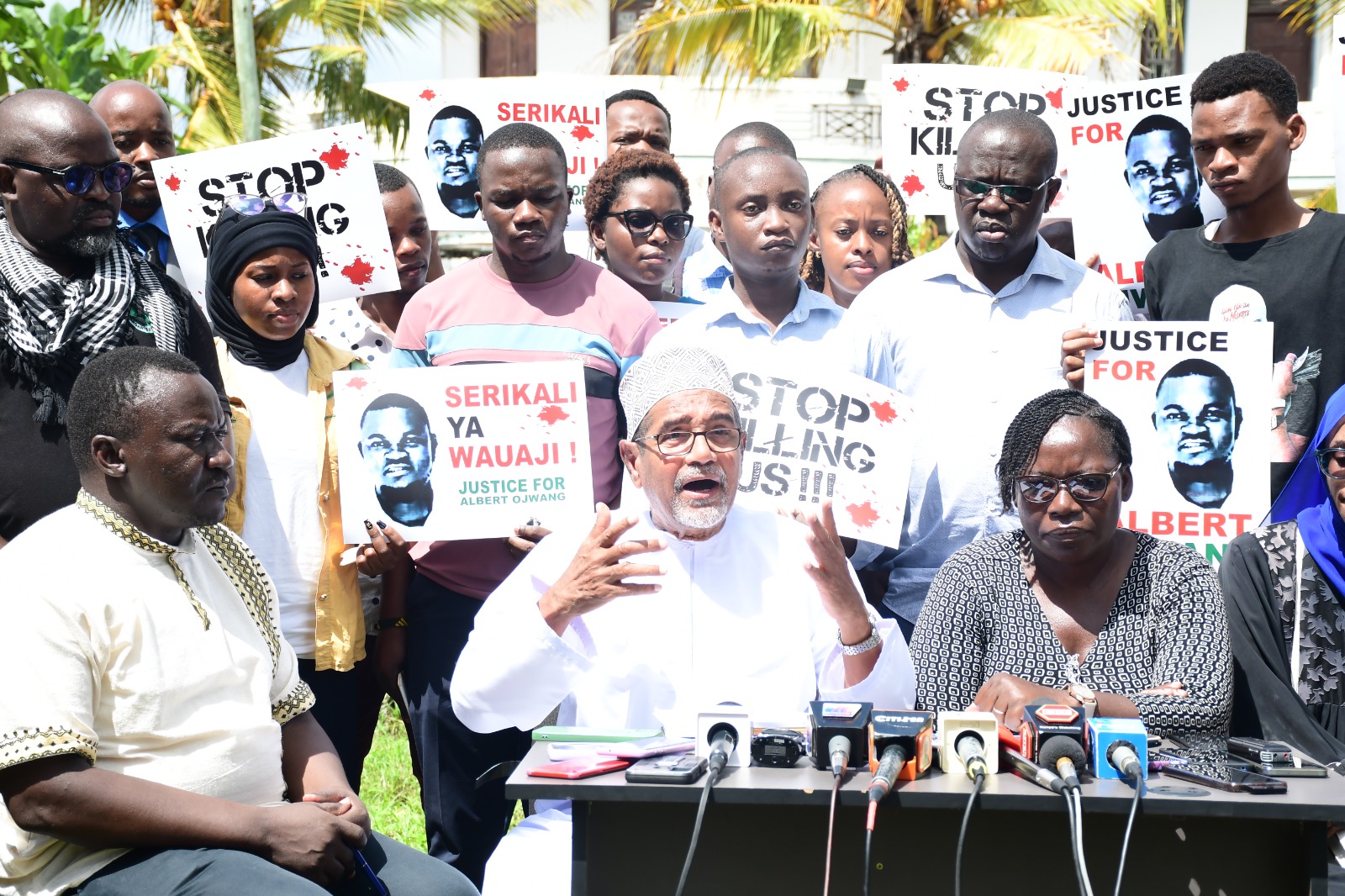

Civil society groups at the Coast have accused the Executive of failing to disband police death squads, which they claim are being used to silence government critics.
Under the Coast Civil Society Network for Human Rights, they said the failure to disband the death squads has emboldened them, eroding public trust on the National Police Service.
The rights defenders are now calling on the international community, including embassies, human rights institutions and global partners to speak out against the wave of violence.
“Use your diplomatic and moral leverage to pressure the Kenyan government to end this brutality. What is unfolding in Kenya and across the East African region demands your immediate solidarity and action,” Haki Africa’s Peter Kazungu said.
This follows the death of 31-year-old teacher and blogger Albert Ojwang on June 8 while in police custody in Nairobi.
Ojwang was on June 7 picked from his home in Homa Bay county by police and driven more than 350km to Nairobi. He was arrested over controversial social media posts that allegedly mentioned Deputy Inspector General of Police Eliud Lagat with corruption claims.
Police at first claimed Ojwang hit his head on a cell wall and was found unconscious in isolation.
However, this narrative has since been dismissed as false by government pathologist Bernard Midia, who said the injuries were consistent with assault and neck compression.
Midia drew the conclusion that Ojwang was tortured and then strangled to death – a revelation that led many to conclude that his being taken to Mbagathi hospital was a mere formality.
The death has since caused uproar among Kenyans of different classes and stature, with government and opposition leaders condemning the death.
The CSOs said Ojwang’s death is not an isolated incident “but a chilling reminder of the institutionalised impunity and rogue behaviour within the National Police Service".
The death squads, they said, are responsible for the deaths and disappearances of many young Kenyans for criticising the government.
“Kenya is a constitutional democracy governed by the rule of law. No individual, regardless of their alleged offence, should be subjected to extrajudicial punishment or state-sanctioned murder,” the CSOs said.
Ojwang’s death occurs just as the country prepares to mark one year since the deadly protests against the Finance Bill that threatened to bring down the Kenya Kwanza regime.
At least 67 Kenyans were killed during the protests.
“Shockingly, 20 more extrajudicial killings have occurred this year, pointing to a systemic pattern of violence and repression,” Kazungu said in the statement.
The CSOs said DIG Lagat is a person of interest in the killing, and must step aside immediately to allow for a thorough and impartial investigation into Ojwang’s arrest and death.
President William Ruto on Wednesday urged Kenyans to exercise restraint and patience and avoid drawing conclusions as investigative agencies work to unravel the true circumstances under which Ojwang died.
He expressed confidence that investigations will establish the truth about the young man's death.
"As we mourn his passing, let us patiently but vigilantly follow the progress of the investigations without making premature judgements or drawing conclusions that could compromise the process and its outcome," Ruto said.
The CSOs network chairperson, Zedekiah Adika, said the way police officers are going about their business is increasingly worrisome.
“We cannot have a police service that does not follow the law and then we stop at that. We call for a clear and proper process that sees a police service that serves Kenyans not kills them,” he said.
Muhuri director Khelef Khalifa said Kenya has a bad history of police misconduct with nothing happening to the perpetrators as a consequence.
“Remember in 1969 in Kisumu when President Jomo Kenyatta and Jaramogi Oginga Odinga clashed at a rally and police were deployed to shoot at people, more than 100 people, including children died. Nothing happened," he said.
“Remember the Wagalla Massacre? Nothing happened. Then the post-election violence in 2007-08 where 1,300 people were killed. Not a single police officer went to jail."
“Last year with Gen Z, at least 63 young people were killed. No one was jailed,” Khalifa added.
The veteran rights defender said the death squad in the NPS operates with impunity and no police officer can question them.
“Those abducted by this squad are taken in broad daylight and in public in most cases. Their faces have even been revealed by some investigative journalists but not even one has been arrested and prosecuted,” Khalifa said.
He said the death squad continues to operate with impunity because no one at the top has decided to stop or disband it.
















